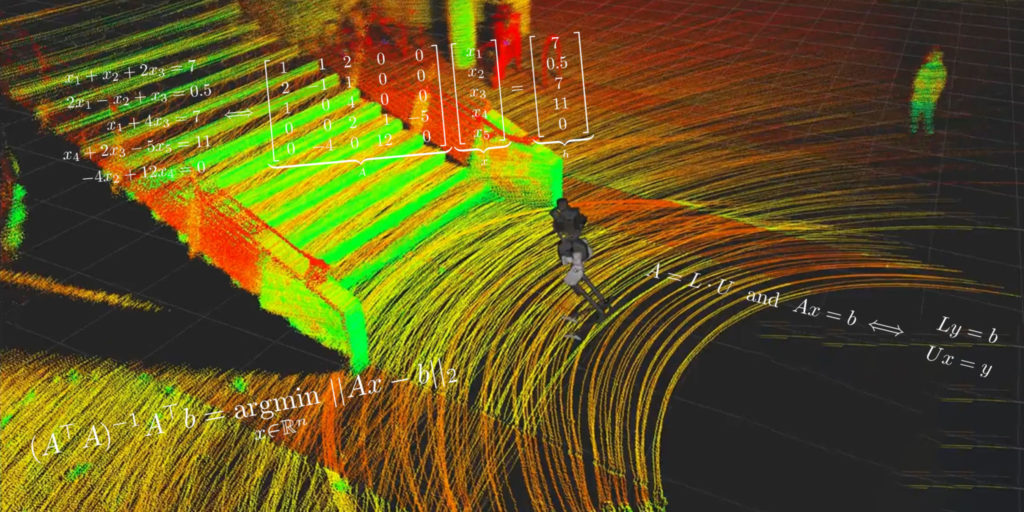Provost’s Teaching Innovation Prize for new robotics course that focuses on equitable education
An interdisciplinary team of faculty created a new introductory course in robotics that is designed for inclusivity by focusing on linear algebra instead of AP calculus, opening it up to freshman students with a broad mathematical background.

 Enlarge
Enlarge
An interdisciplinary team of four faculty from the University of Michigan and Morehouse College received the Provost’s Teaching Innovation Prize for a new course, Computational Linear Algebra (Robotics 101), that reimagines the way mathematics is introduced to first-semester engineering undergraduate students.
The team includes:
- Jessy Grizzle, Elmer G. Gilbert Distinguished University Professor of Engineering, Jerry W. and Carol L. Levin Professor of Engineering, professor of electrical engineering and computer science and of mechanical engineering, director of the Robotics Institute, College of Engineering (CoE)
- Chad Jenkins, professor of electrical engineering and computer science, CoE
- Maani Ghaffari, assistant professor of naval architecture and marine engineering, CoE
- Dwayne Joseph, assistant professor of mathematics and computational sciences, Morehouse College
Engineering students’ high school ZIP codes can be a predictor of their success because where they attend school can determine their access to Advanced Placement calculus courses. Driven by the belief that a person’s intellectual ability and drive should dictate success rather than where they attended high school, the team designed the new course with equity in mind.
The team assumed students had a background in algebra and none in programming, thereby opening up linear algebra and programming to almost everyone in a STEM field at U-M. Through a partnership, 20 percent of the fall 2020 pilot class was made up of students participating remotely from Morehouse and Spelman colleges.
Realizing that not all students have access to powerful home computers that can run MATLAB, the course instead used Julia, a browser-based language deliverable through Canvas. Anyone who could browse from home or the library could complete the programming assignments with the speed of cloud computing.
By the end of the course, students had a working knowledge of matrix mathematics comparable to MATH 214, with superior computational skills. Students used this new knowledge for a greater understanding of how linear algebra powers modern engineering.
“ROB 101 was a great class, unlike any other I’ve taken so far,” wrote engineering student Katelyn King in a letter recommending the project for award. “The course broadened my potential paths in engineering, enabled me to begin working in a lab, and strengthened my connection with math.”
This announcement is taken from Six projects to be awarded Provost’s Teaching Innovation Prizes, by Ann Zaniewski, The University Record.
Additional information about the course: ‘Solving for equity’: A Michigan Robotics course flips the script on engineering ed


 MENU
MENU